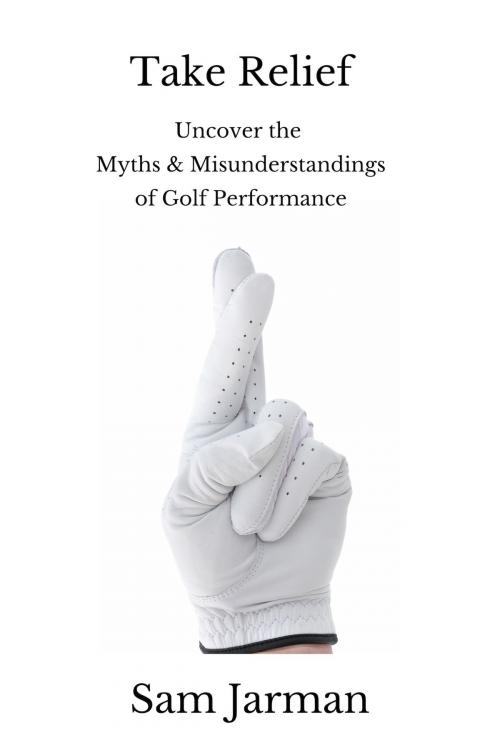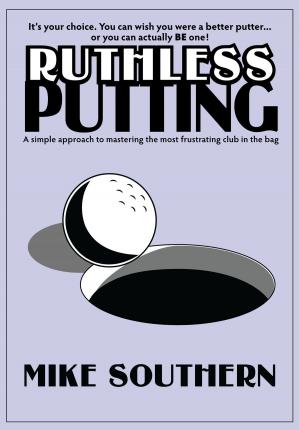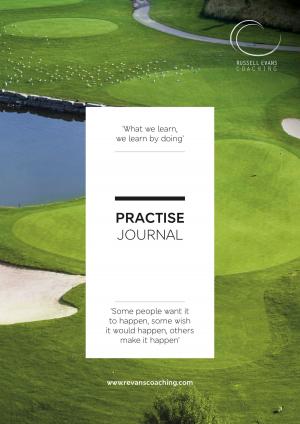Take Relief: Uncover the Myths & Misunderstandings of Golf Performance
Nonfiction, Sports, Reference, Sports Psychology, Golf| Author: | Sam Jarman | ISBN: | 9781370295258 |
| Publisher: | Sam Jarman | Publication: | January 22, 2019 |
| Imprint: | Smashwords Edition | Language: | English |
| Author: | Sam Jarman |
| ISBN: | 9781370295258 |
| Publisher: | Sam Jarman |
| Publication: | January 22, 2019 |
| Imprint: | Smashwords Edition |
| Language: | English |
The myths are many.
You need to think positive!
You have to control the controllables!
You should see the ball going to the target!
You must have a consistent routine!
Sounds simple, doesn’t it?
But if managing and controlling your thinking on the course is really as easy as we are told, why are so many golfers frustrated, disillusioned and struggling to play their best?
Why do tour players pay performance coaches and sports psychologists to help them cope with the pressure of tournament golf, yet still don’t play well every week?
Could it be because our mental approach to the game is based on myths, misunderstandings, and superstitions, rather than fact?
This book examines the evidence supporting the strategies currently offered by the golf coaching industry.
Do feelings of pressure really come from a close match or a big tournament?
Does using a pre-shot routine really lead to lower scores?
Does consistency really come from a technically perfect golf swing?
Does changing and fixing your golf swing really mean you’ll play better?
Do lower scores guarantee you’ll enjoy the game more?
Our approach to golf’s ‘inner game’ has hardly changed in the past 40 years. Most golf performance books seem to be the same old advice repackaged in a new shiny cover.
And golfers continue to suffer from inconsistent play and lack of enjoyment.
This book is different. Radically different
It explains in simple terms the fundamental misunderstanding which lies behind the struggles many golfers experience with playing their best golf and enjoying the game.
When golfers play their best, they say they feel happy, free, relaxed, uncluttered and confident.
Yet most golf psychology books are a long list of things to do, things to think about, strategies to employ, techniques to remember.
How can grinding and trying to do those things lead to the feelings golfers are looking for?
This book will take a load off your mind, allow you to go back to playing the way we played games when we were kids.
Allow you to experience the happiness of playing full out, for just the sheer fun of it, rather than worrying about an outcome or result.
This book will set you free.
Get it now.
The myths are many.
You need to think positive!
You have to control the controllables!
You should see the ball going to the target!
You must have a consistent routine!
Sounds simple, doesn’t it?
But if managing and controlling your thinking on the course is really as easy as we are told, why are so many golfers frustrated, disillusioned and struggling to play their best?
Why do tour players pay performance coaches and sports psychologists to help them cope with the pressure of tournament golf, yet still don’t play well every week?
Could it be because our mental approach to the game is based on myths, misunderstandings, and superstitions, rather than fact?
This book examines the evidence supporting the strategies currently offered by the golf coaching industry.
Do feelings of pressure really come from a close match or a big tournament?
Does using a pre-shot routine really lead to lower scores?
Does consistency really come from a technically perfect golf swing?
Does changing and fixing your golf swing really mean you’ll play better?
Do lower scores guarantee you’ll enjoy the game more?
Our approach to golf’s ‘inner game’ has hardly changed in the past 40 years. Most golf performance books seem to be the same old advice repackaged in a new shiny cover.
And golfers continue to suffer from inconsistent play and lack of enjoyment.
This book is different. Radically different
It explains in simple terms the fundamental misunderstanding which lies behind the struggles many golfers experience with playing their best golf and enjoying the game.
When golfers play their best, they say they feel happy, free, relaxed, uncluttered and confident.
Yet most golf psychology books are a long list of things to do, things to think about, strategies to employ, techniques to remember.
How can grinding and trying to do those things lead to the feelings golfers are looking for?
This book will take a load off your mind, allow you to go back to playing the way we played games when we were kids.
Allow you to experience the happiness of playing full out, for just the sheer fun of it, rather than worrying about an outcome or result.
This book will set you free.
Get it now.















